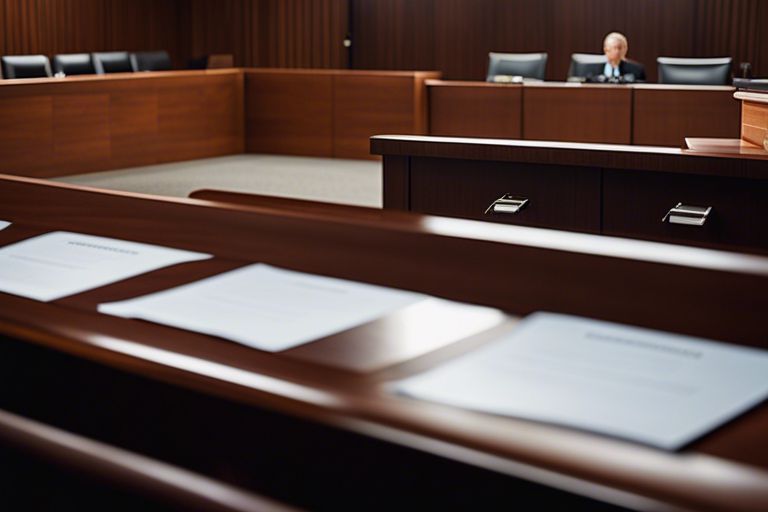Over the years, DNA evidence has become a pivotal factor in sexual assault defense strategies in Arizona. Due to its accuracy and scientific credibility, DNA evidence can either exonerate or incriminate individuals accused of sexual assault. In Arizona, the use of DNA evidence in sexual assault cases can make or break the outcome of a trial, impacting the lives of both the accused and the alleged victim. Understanding the significance of DNA evidence and its role in defense strategies is crucial for anyone involved in a sexual assault case in Arizona.
Key Takeaways:
- DNA evidence is a crucial tool in sexual assault defense strategies in Arizona. It can be used to establish the presence or absence of a suspect at the crime scene and may exonerate falsely accused individuals.
- Defense attorneys can challenge the validity and handling of DNA evidence in court. They may question the chain of custody, integrity of samples, or the reliability of testing procedures to raise doubt about the evidence’s accuracy.
- Consulting with an experienced defense attorney in Arizona is crucial when DNA evidence is presented in a sexual assault case. The attorney can analyze the evidence, develop a strong defense strategy, and advocate for the defendant’s rights throughout the legal process.
1. DNA evidence can exonerate wrongfully accused individuals.
2. DNA can prove or disprove sexual contact.
3. Defense may challenge evidence collection procedures.
4. Inconsistencies in DNA evidence can be questioned.
5. Use of expert witnesses to interpret DNA results.
6. DNA evidence is a crucial tool in defense strategies.
Understanding DNA Evidence
Assuming a sexual assault case involves DNA evidence, it is crucial to understand the role it plays in defense strategies. In Arizona, the Sexual Assault Protocol outlines the proper handling and analysis of DNA evidence in such cases.
Types of DNA Tests Used in Sexual Assault Cases
- Y-STR Testing
- STR Testing
- mtDNA Testing
- Touch DNA Testing
- Secondary Transfer DNA Testing
Types of DNA testing used in sexual assault cases include Y-STR testing, STR testing, mtDNA testing, touch DNA testing, and secondary transfer DNA testing. These tests analyze different types of DNA samples to identify potential suspects or corroborate evidence. Any discrepancies in the DNA evidence must be thoroughly investigated.
The Process of Collecting and Analyzing DNA Samples
Process: For instance, the process of collecting and analyzing DNA samples in sexual assault cases involves meticulous care and adherence to protocols. Proper collection and preservation of DNA evidence from various sources such as clothing, body swabs, and other items are crucial for accurate analysis. Analysis of DNA samples in a controlled laboratory setting helps in linking the suspect to the crime or eliminating them as a potential contributor. Any mishandling or contamination of DNA samples can jeopardize the integrity of the evidence and impact the outcome of the case.
DNA Evidence in the Defense Strategy
Challenging the DNA Evidence Reliability
On rare occasions, DNA evidence in sexual assault cases may be challenged for its reliability. Factors such as contamination, improper handling, or misinterpretation of results can lead to unreliable conclusions. Defense attorneys may utilize expert witnesses to cast doubt on the accuracy of DNA evidence presented by the prosecution.
Excluding DNA Evidence Through Legal Motions
Evidence obtained through DNA analysis must adhere to strict protocols to be admissible in court. Defense attorneys can file legal motions to exclude DNA evidence if there are violations of chain of custody, lack of proper documentation, or if the evidence was obtained through unconstitutional means. Excluding such evidence can significantly weaken the prosecution’s case.
Evidence that is obtained illegally or in violation of a defendant’s rights can be deemed inadmissible in court, including DNA evidence. This can be a critical strategy in the defense of those accused of sexual assault in Arizona. By filing motions to exclude DNA evidence that was obtained improperly, defense attorneys can limit the prosecution’s ability to prove their case beyond a reasonable doubt.

Ethical and Legal Considerations
Privacy Concerns and DNA Databases
To address privacy concerns related to DNA evidence in sexual assault defense strategies, it is crucial to consider the implications of using databases that store genetic information. Privacy breaches and potential misuse of this sensitive data are legitimate fears for individuals involved in such cases. Protecting the privacy of individuals while utilizing DNA evidence in defense strategies is a complex ethical and legal challenge.
Consent and Contamination Issues
Issues surrounding consent and contamination play a significant role in the ethical and legal considerations of using DNA evidence in sexual assault defense cases in Arizona. Ensuring that proper consent is obtained for collecting and analyzing DNA samples is necessary to maintain the integrity of the evidence and uphold ethical standards. Moreover, preventing contamination of DNA samples is crucial to avoid any misinterpretation of the evidence and protect the rights of the individuals involved in the case.
Alternative Defense Strategies Without DNA Evidence
Alibi and Witness Testimony
Alternative defense strategies without DNA evidence in sexual assault cases in Arizona may include presenting alibi evidence or witness testimony to establish that the accused was not present at the scene of the alleged crime. This can create reasonable doubt in the minds of the jury about the defendant’s involvement in the assault.
Questioning the Credibility of the Accuser
Alternative defense strategies may also involve questioning the credibility of the accuser. This could entail investigating any inconsistencies in their statements, past behavior that may undermine their credibility, or motives for making false accusations. By casting doubt on the reliability of the accuser, the defense can weaken the prosecution’s case against the defendant.
A successful defense may involve uncovering inconsistencies in the accuser’s story, prior false accusations made by the accuser, or motive for fabricating the assault. It is crucial for the defense attorney to carefully scrutinize the accuser’s background and statements to build a strong defense strategy.
Summing up
On the whole, DNA evidence plays a crucial role in sexual assault defense strategies in Arizona. It serves as a powerful tool for both the prosecution and defense in determining the guilt or innocence of the accused. Properly analyzed DNA evidence can either exonerate a wrongly accused individual or provide concrete proof of guilt. Defense attorneys in Arizona must understand the significance of DNA evidence and how to incorporate it effectively into their strategies to ensure the best possible outcome for their clients. As technology advances, the role of DNA evidence in sexual assault cases will continue to evolve, making it vital for defense attorneys to stay informed and up-to-date on the latest developments in this field.
FAQ
Q: What role does DNA evidence play in sexual assault defense strategies in Arizona?
A: DNA evidence can play a crucial role in sexual assault defense strategies in Arizona by either exonerating the accused or helping to identify the perpetrator. It can be used to establish a suspect’s presence at the crime scene or prove the lack of the accused’s DNA, supporting their innocence.
Q: How is DNA evidence collected in sexual assault cases in Arizona?
A: In Arizona, DNA evidence in sexual assault cases is typically collected through a sexual assault examination kit, commonly known as a rape kit. This kit contains tools for collecting DNA samples from the victim, the crime scene, and the suspect, which are then analyzed in a forensic laboratory.
Q: Can DNA evidence be used to defend against false allegations of sexual assault in Arizona?
A: Yes, DNA evidence can be a powerful tool in defending against false allegations of sexual assault in Arizona. By comparing the DNA profiles collected from the crime scene with those of the accused, it can be shown that there is no match, casting doubt on the validity of the accusations.
Q: How reliable is DNA evidence in sexual assault defense cases in Arizona?
A: DNA evidence is generally considered to be highly reliable in sexual assault defense cases in Arizona. However, the reliability can vary depending on factors such as the quality of the DNA sample, the handling of evidence, and the proficiency of the forensic analysis conducted.
Q: What should someone accused of sexual assault do if DNA evidence is presented against them in Arizona?
A: If DNA evidence is presented against someone accused of sexual assault in Arizona, it is crucial to seek legal representation immediately. An experienced defense attorney can review the evidence, challenge its validity if necessary, and develop a strong defense strategy to protect the accused’s rights and defend against the allegations.


Recent Comments